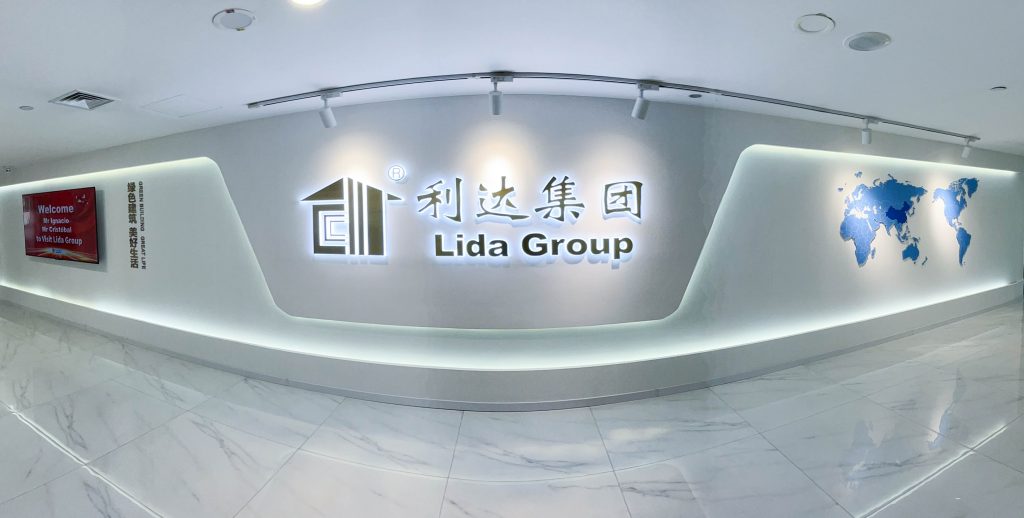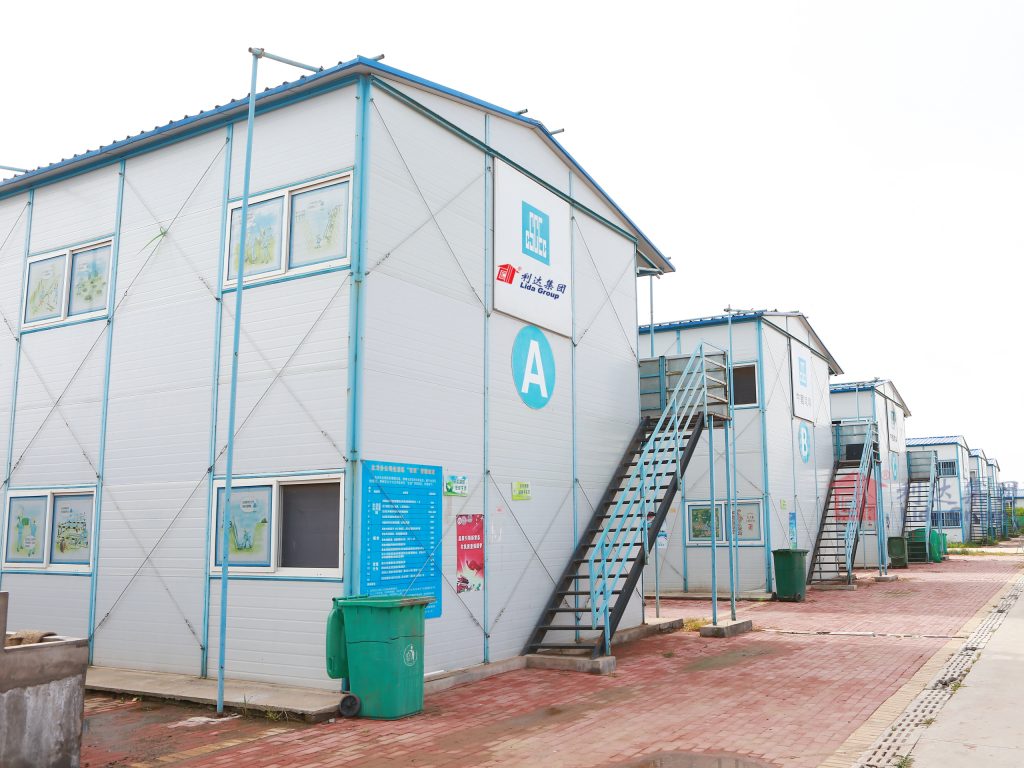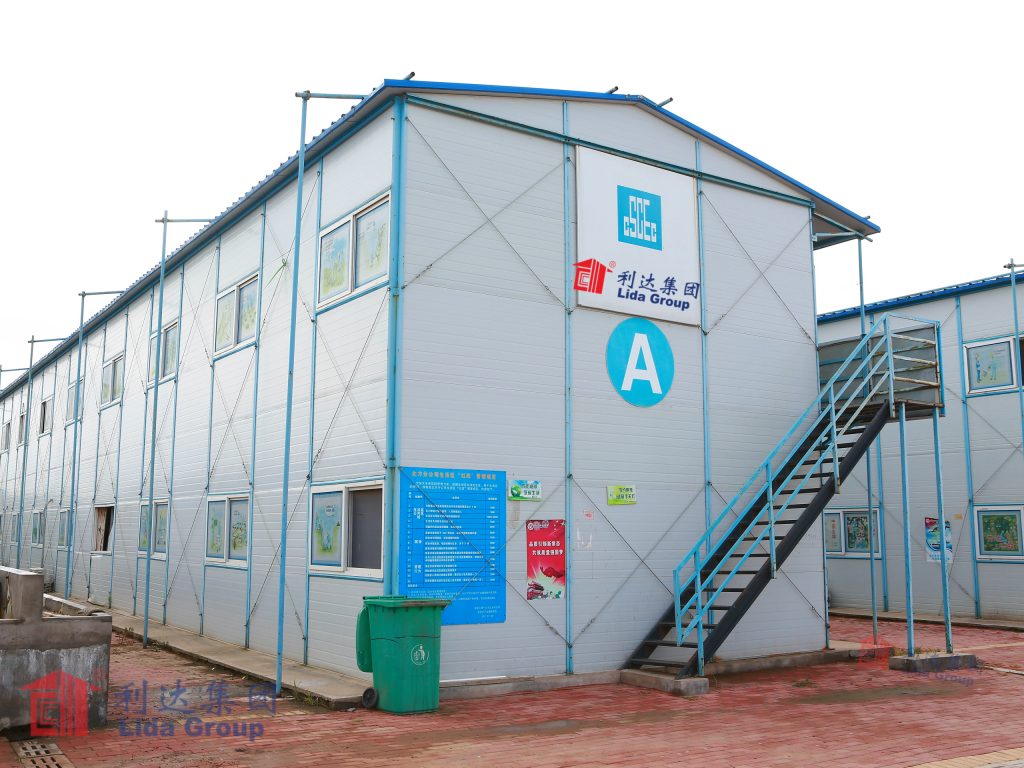Introduction to Container Homes: An Overview
In recent years, there has been a significant shift towards sustainable living, with individuals and communities increasingly seeking eco-friendly housing options that minimize environmental impact while maximizing efficiency and comfort. Among these innovative solutions, container homes have emerged as a popular choice. These structures utilize recycled shipping containers as the primary building material, offering a unique blend of affordability, durability, and adaptability. The concept is simple yet revolutionary: take what was once considered waste and transform it into livable, functional spaces. This approach not only addresses the pressing issue of waste management but also contributes to sustainable urban development and emergency shelter solutions across the globe.
At the forefront of this movement is Lida Group, a pioneer in the development of sustainable housing solutions. Specializing in prefabricated buildings, Lida Group has taken the initiative to innovate with sustainable sandwich panel houses designed specifically for rapid, movable accommodation solutions worldwide. Sandwich panels, known for their excellent thermal insulation properties and structural strength, are used in constructing these homes. This method allows for the creation of durable, energy-efficient dwellings that can be quickly assembled and easily relocated, making them ideal for both temporary and permanent housing needs.
The significance of Lida Group’s contribution cannot be overstated. By leveraging advanced technology and sustainable practices, they have set new standards in the construction industry. Their focus on sustainability ensures that each home minimizes its carbon footprint, utilizing renewable resources and minimizing waste throughout the building process. Moreover, the mobility aspect of these homes provides unprecedented flexibility, allowing them to be deployed rapidly in response to natural disasters, humanitarian crises, or even as part of dynamic urban planning strategies.
As we delve deeper into the world of container homes, exploring the benefits, challenges, and future potential of these innovative dwellings, it becomes clear that Lida Group’s efforts represent a significant step forward in the quest for sustainable living solutions. Through continued innovation and a commitment to environmental responsibility, companies like Lida Group are reshaping the way we think about housing, one container at a time.
Lida Group’s Innovative Approach
Lida Group stands out in the field of sustainable housing solutions through its pioneering use of sandwich panel technology in the construction of movable accommodations. Sandwich panels, consisting of two layers of sheeting with a core of insulating material, offer exceptional thermal performance and structural integrity, making them ideal for creating energy-efficient and robust living spaces. What sets Lida Group apart is its ability to integrate these panels into prefabricated buildings that are both environmentally friendly and highly adaptable.
One of the key advantages of using sandwich panels in Lida Group’s designs is the enhanced insulation properties they provide. This feature significantly reduces the need for artificial heating and cooling, thereby lowering energy consumption and operational costs. Additionally, the lightweight nature of these panels facilitates easier transportation and assembly, which is crucial for providing rapid housing solutions in remote or disaster-stricken areas. The modular design of these structures allows for customization based on specific requirements, whether it be for individual residences, temporary shelters, or larger community developments.
Moreover, Lida Group emphasizes the use of sustainable materials and manufacturing processes. By choosing eco-friendly components and reducing waste during production, they ensure that their constructions have a minimal impact on the environment. This commitment to sustainability extends beyond the building phase; the longevity and recyclability of sandwich panels contribute to the overall lifecycle assessment of these homes, promoting long-term ecological benefits.
The integration of technology further enhances Lida Group’s offerings. Advanced engineering techniques and digital tools enable precise fabrication and assembly, ensuring high-quality results every time. Furthermore, smart home technologies can be seamlessly incorporated into these structures, offering residents increased convenience and control over their living environments.
In summary, Lida Group’s innovative approach to using sandwich panel technology in prefabricated buildings represents a major advancement in the realm of sustainable housing. Their focus on energy efficiency, ease of assembly, and environmental responsibility positions them as leaders in the development of adaptable and eco-friendly living spaces. As global demand for sustainable solutions continues to grow, Lida Group remains committed to pushing the boundaries of what is possible in the construction industry.
Market Impact and Reception
The introduction of Lida Group’s sustainable sandwich panel houses has generated considerable attention and positive reception within the housing market. Industry experts and consumers alike have praised the company for its innovative approach to addressing critical issues such as environmental sustainability, rapid deployment, and cost-effectiveness. One of the most notable impacts has been the reduction in construction time and costs associated with traditional building methods. Projects that would typically take months to complete can now be finished in a fraction of the time, thanks to the streamlined prefabrication process employed by Lida Group.
Customer testimonials highlight the versatility and quality of these movable accommodations. Many users report being impressed by the ease of assembly and the high level of customization available, which allows them to tailor the space to their specific needs. For instance, one customer noted how they were able to quickly erect a comfortable living space in a rural area, which previously would have required extensive groundwork and infrastructure development. Another highlighted the energy savings achieved through the superior insulation properties of the sandwich panels, resulting in lower utility bills and a more comfortable indoor climate year-round.
Market analysts predict a growing trend towards prefabricated and sustainable housing solutions, driven in part by increasing awareness of environmental issues and the need for more efficient construction methods. Companies like Lida Group are seen as trailblazers in this movement, setting new benchmarks for what is achievable in terms of speed, sustainability, and adaptability. The success of their sandwich panel houses underscores the potential for broader adoption of similar technologies, suggesting a shift towards more sustainable and resilient housing models in the near future.
### Design Considerations and Practical Applications
When designing sustainable sandwich panel houses, several critical factors come into play to ensure both functionality and user satisfaction. First and foremost, architectural considerations must balance aesthetics with practicality. The sleek, modern appearance of these homes often appeals to those seeking contemporary living spaces, while the modular nature of the design allows for seamless expansion or reconfiguration to meet evolving needs. Key elements include optimal window placement for natural light, efficient spatial layouts, and thoughtful integration of outdoor living areas to enhance the overall living experience.
Interior design plays a pivotal role in maximizing the comfort and usability of these homes. High-quality finishes and materials not only elevate the aesthetic appeal but also contribute to the durability and maintenance of the space. Sustainable choices such as low-VOC paints, reclaimed wood, and eco-friendly furnishings align with the overarching green ethos of these structures. Customization options allow residents to personalize their interiors according to personal tastes and lifestyle preferences, from minimalist to eclectic styles.
Comfort features are another essential aspect of the design. Superior insulation provided by sandwich panels ensures a stable and comfortable indoor temperature regardless of external weather conditions. Advanced HVAC systems and energy-efficient appliances further enhance the living environment, reducing energy consumption and operational costs. Smart home technologies can be integrated to offer greater control over lighting, security, and climate settings, adding convenience and peace of mind for occupants.
Practical applications of these movable accommodations span a wide range of scenarios. In urban settings, they serve as affordable housing solutions that can be quickly deployed to address shortages or accommodate population growth. In remote or underdeveloped regions, these homes provide essential infrastructure without the need for extensive site preparation. They are also invaluable in disaster relief efforts, where rapid deployment and ease of setup are crucial. Additionally, their portability makes them ideal for temporary events, seasonal residences, or even mobile offices.
Overall, the design considerations for sustainable sandwich panel houses emphasize creating living spaces that are not only environmentally responsible but also highly functional and aesthetically pleasing. By prioritizing user comfort and practicality, Lida Group continues to push the boundaries of what is possible in the realm of sustainable housing, offering versatile solutions that cater to diverse needs and lifestyles.
Future Trends and Potential Developments
Looking ahead, the future of sustainable housing solutions like those offered by Lida Group appears promising, with several emerging trends poised to shape the landscape. Technological advancements will likely play a pivotal role in enhancing the capabilities of sandwich panel houses. Innovations in material science could lead to the development of even more efficient and sustainable building materials, potentially incorporating self-healing properties or improved insulation coefficients. Advances in automation and robotics may streamline the manufacturing and assembly processes, further reducing costs and construction times.
Sustainability initiatives are expected to gain momentum, driven by increasing consumer awareness and regulatory pressures. Expectations for net-zero energy homes and circular economy principles will push manufacturers to design products with end-of-life recycling in mind. Energy storage systems, such as advanced batteries, could become integral components, enabling off-grid living and reducing reliance on fossil fuels.
Additionally, the integration of smart technologies will continue to evolve, offering residents unprecedented control over their living environments. From AI-driven climate control to predictive maintenance systems, these enhancements aim to maximize comfort and efficiency. Furthermore, the rise of IoT (Internet of Things) devices will facilitate seamless connectivity between different household systems, promoting a smarter, more responsive living space.
In conclusion, the ongoing evolution of sustainable housing solutions holds great potential for transforming how we live. With continued innovation and a commitment to sustainability, companies like Lida Group are well-positioned to lead the charge toward a greener, more efficient future in housing.

Related news
-
Innovative Steel Structural Construction by Lida Group Ensures Long-Lasting, High-Quality Buildings
2025-02-10 14:35:43
-
Lida Group Revolutionizes Construction with Prefab Buildings and Sandwich Panel Houses
2025-02-06 11:38:00
-
Mobile Container Apartments: Lida Group Sets New Standards for Modern Living
2025-01-24 15:26:25
contact us
- Tel: +86-532-88966982
- Whatsapp: +86-13793209022
- E-mail: sales@lidajituan.com





